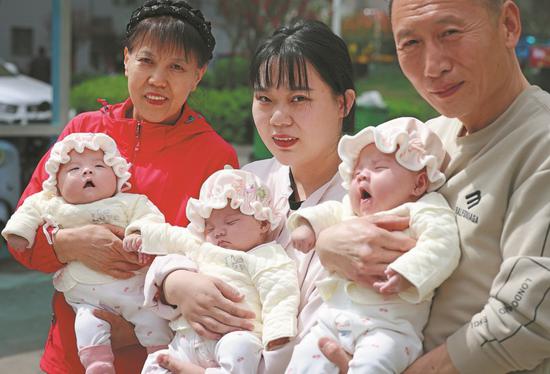
Li Xing (center), mother of triplets, holds her babies with her parents at their community in Taiyuan, Shanxi province, on April 14. (ZHU XINGXIN/CHINA DAILY)
Roaring numbers
Some hospitals have already reported marked increases in treatment of pregnant women and babies being delivered since late last year. Nannies and postpartum centers are receiving a growing number of inquiries and operating at almost full capacity.
Jiang Haili, an obstetrician at Beijing Obstetrics and Gynecology Hospital affiliated to Capital Medical University, said that the number of newborns in their maternity ward has been climbing since last November.
"Nowadays, we deliver around 15 to 20 babies each day, or about 600 each month, compared with 400 during the low period of last year," he said.
"I think the rise has a lot to do with the COVID-19 pandemic," Jiang said, adding that many couples were hesitant about having a baby during the outbreak due to concerns about the virus' impact on pregnant women and the health of newborns.
"Besides that, we have seen the launch of the third-child policy and a series of new measures to support births in recent years, such as the inclusion of fertility treatments in medical insurance programs in some regions," he said. "The dragon zodiac sign is also associated with many positive blessings and many couples are fond of dragon babies."
During the most recent peak in the number of newborns in 2016 — when China implemented the second-child policy that allows all couples to have two children, the ward saw about 15,000 to 17,000 new births a year, he said.
"Our maternity ward is still fully equipped with over 80 medical personnel as it was during the peak, so handling the slight rise in new births this year presents no challenges," he said.
Kang Wenjuan, president of the Children's Hospital of Shanxi, Shanxi province, said the current situation was similar to 2017 when there was a bump in new births in the year after the rollout of the second-child policy. Shanxi province recorded 400,000 newborns that year, almost double the number for 2023, data shows.
"This year's total number of newborns across the province is estimated to be higher at around 210,000…we are already seeing a rise in pregnant women confirmed through pregnancy tests," she said. "To cope with the increase, we have stepped up training of medical personnel and launched remote diagnosis platforms to boost our services."
Zhang Jianlin, manager of the Taiyuan Chimei Postpartum Center in Taiyuan, Shanxi, said the center has seen a surge in requests so far this year. "Our facility has 28 villas and 150 suites. From January to March, our beds were completely full," he said.
Ma Xiaobei, head of the Laikang Maternal and Child Care Center in Langfang, Hebei province, said that the facility is almost fully booked until the end of this year, prompting it to start providing home services.
"Expectant mothers usually make reservations six months ahead of their due date," she said. "During the COVID-19 pandemic, we seldom saw full bookings for an entire month, but this year is different. The volume of orders has gone up by 30 percent compared with the previous year."
She said many couples consider it auspicious to have a dragon baby this year. "The center held an event to celebrate the births of the earliest dragon babies coming here," Ma said.
However, she also believes that China's birthrate will continue to decline in the long run. "The focus of our business in the future will be probably serving a smaller number of clients with higher quality services," she said.









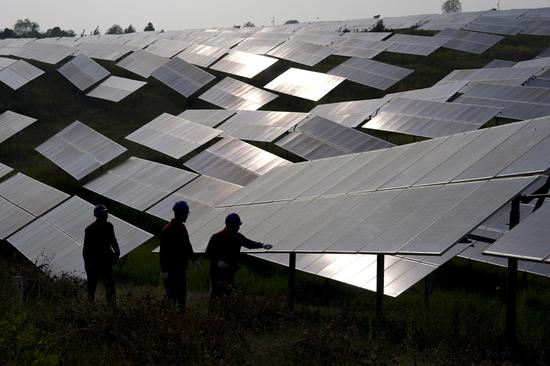

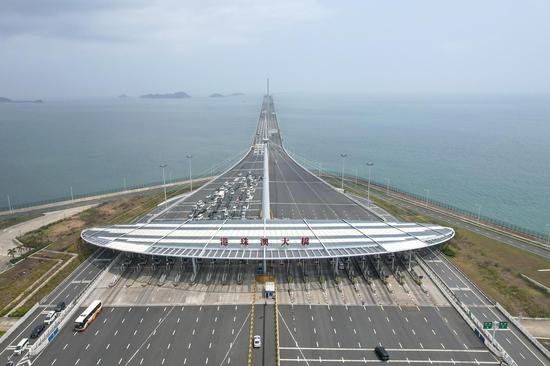



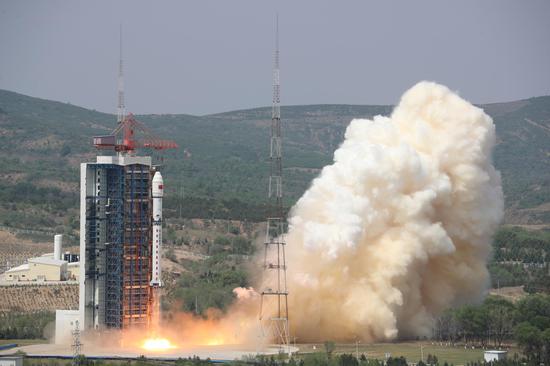






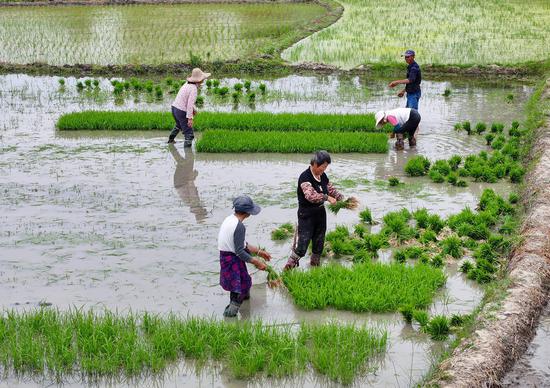



















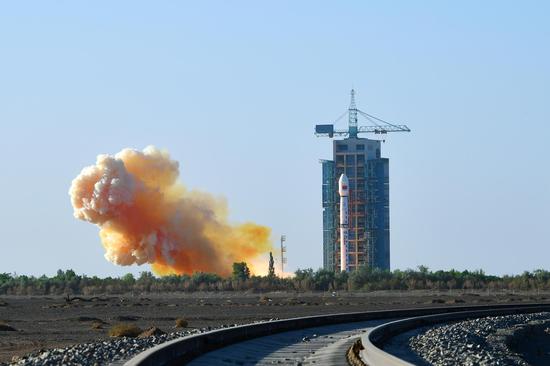







 京公网安备 11010202009201号
京公网安备 11010202009201号